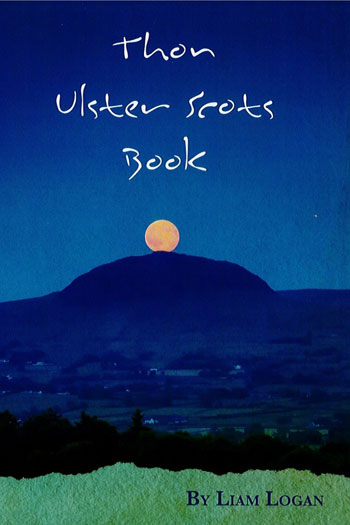 Bangor Historical Society held its final meeting of 2014 on 11 December. The speaker was Liam Logan who took a light-hearted look at Ulster Scots. He has written books and broadcast on the subject.
Bangor Historical Society held its final meeting of 2014 on 11 December. The speaker was Liam Logan who took a light-hearted look at Ulster Scots. He has written books and broadcast on the subject.
He began by looking at the status of languages and explained that it is a vexed question in many countries. In the USA English is the main language, although the first amendment to the constitution prohibits the imposing of one language on the country. This may become an important issue as Spanish speakers may soon be in the majority.
The pioneer of Ulster Scots studies was Jim Fenton who grew up in County Antrim and attended Dalriada school. He went to Stranmillis to train as a teacher and became aware that the language used there was very different to the one he was accustomed to at home. He began to write down words and phrases which he encountered in his native area and so was able to produce a book called The Hamely Tongue.
Mr. Logan stressed that in formal situations people use a different language to that they would employ in everyday situations. He then gave an example in the word “footer” which in Ulster Scots means to take action ineffectively. It came from Scotland and ultimately from Mediaeval French.
Some people argue that Ulster Scots is a dialect, not a language. Others say it is bad English with a Ballymena accent or Protestant Irish. It has also been alleged that it is a made up language. Mr. Logan disagreed and said that all languages were made up as a medium for recording and transferring thought. It has been accepted as a language by the European Charter group on minority languages.
Mr. Logan said he had become aware of the otherness of Ulster Scots due to a neighbour of his family Alec Catherwood. The words used come from various origins including lowland Scots, Scots Gaelic, Irish Gaelic, French, Norse etc. Although it may be seen as a Presbyterian language, the speakers come from various backgrounds.
Using Mr. Fenton’s dictionary as a guide Mr. Logan explained that Ulster Scots has more terms of abuse than words for praise. He took as his example the letter G under which Fenton had 24 separate words of abuse. He also pointed out that many of us use Ulster Scots words without realising it.
Throughout his talk Mr. Fenton told amusing stories which depended on the pronunciation of Ulster Scots. One concerned a tourist in the Glens of Antrim who went into a hotel. He ordered horse soup, having heard a local customer ask for more soup, the word “more” being pronounced like “mare”. He finished his talk by reading an Ulster Scots version of the poem “The night before Christmas”.
Following questions Don Patterson thanked Mr. Logan for an excellent, humorous talk.
